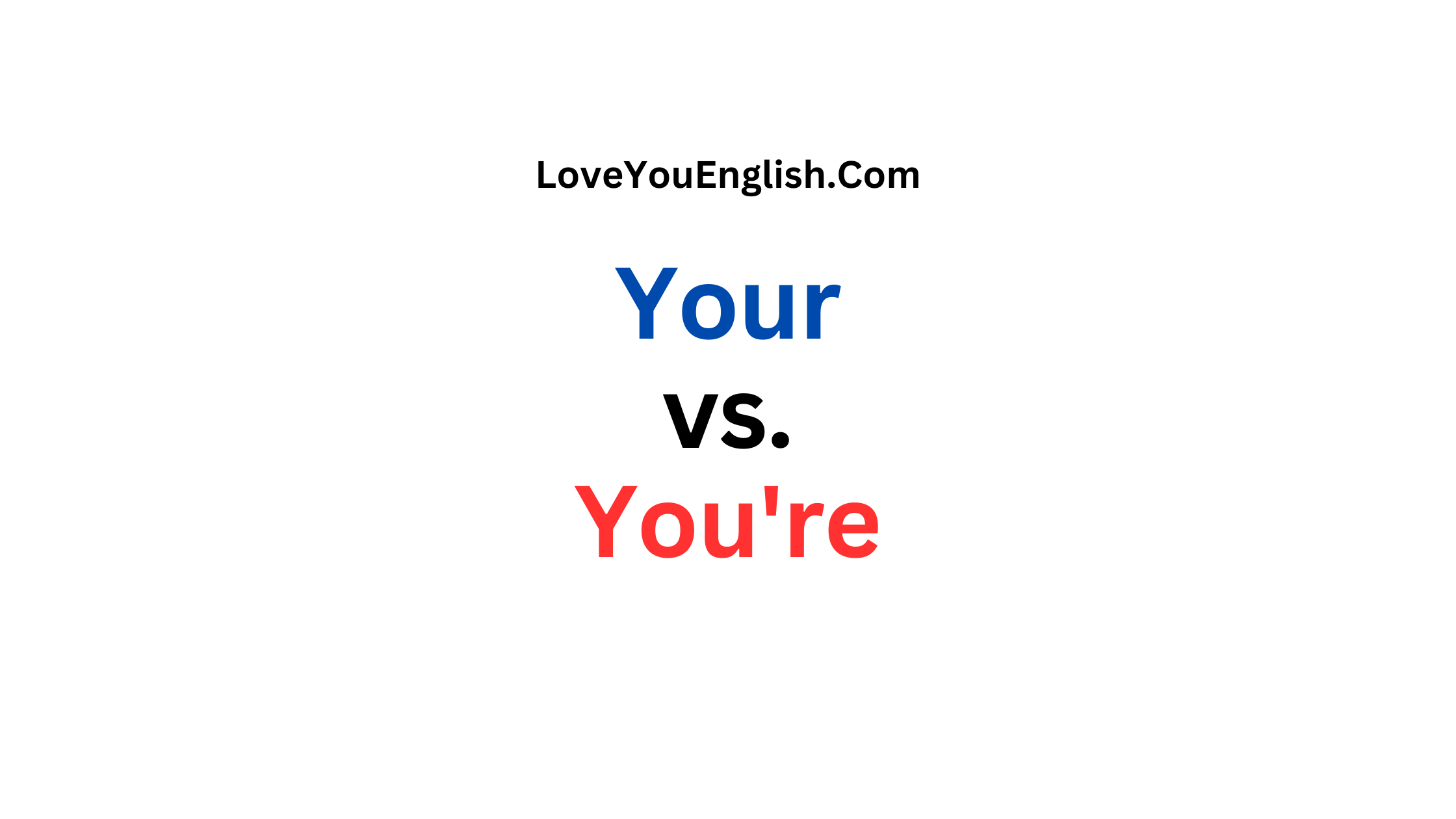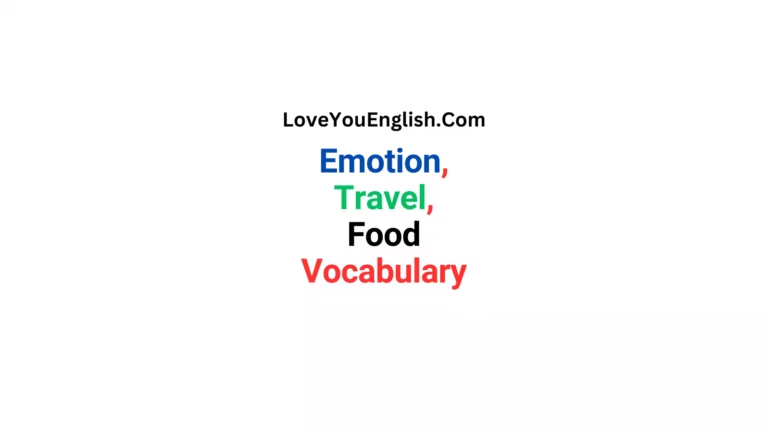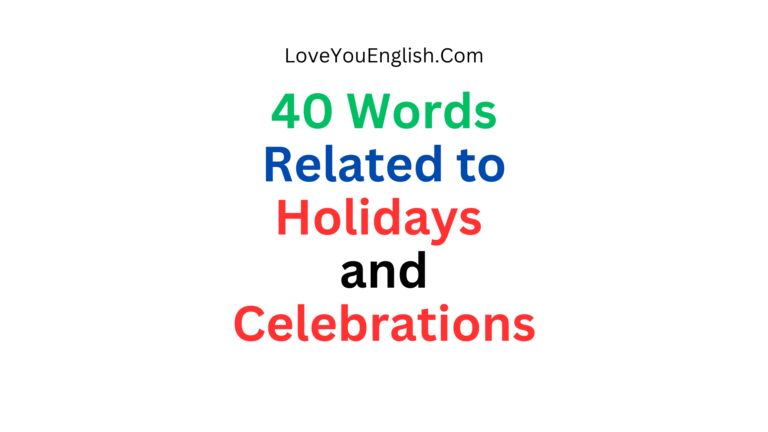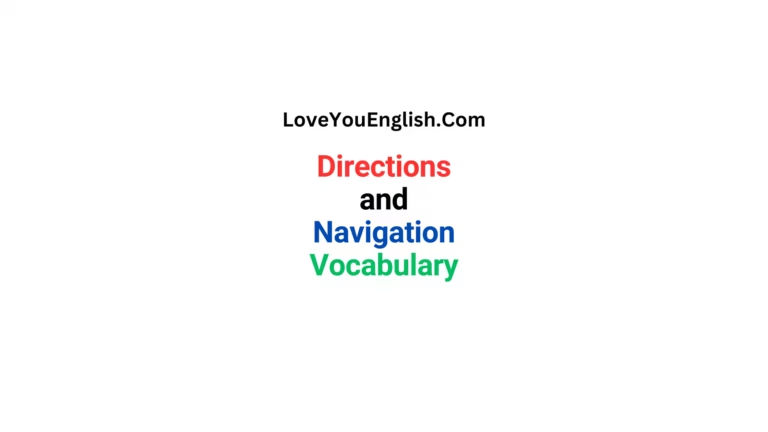Your vs. You’re: Mastering the Difference
In the world of English grammar, few word pairs create as much confusion as “your” and “you’re.”
These words sound alike but have different meanings and spellings, which can lead to mistakes, even among native speakers.
I will help clear up the difference between “your” and “you’re” by giving you simple definitions, lots of examples, and helpful tips to make sure you use them correctly every time.
Let’s break it down:
Your: This is a possessive adjective that shows ownership or belonging.
You’re: This is a short form of “you are.”
Even though these definitions seem simple, the way they sound can cause mix-ups when writing.
Knowing how to use each word correctly is really important.
A Closer Look at “Your”
“Your” is a possessive adjective, meaning it shows that something belongs to or is connected to the person or people you are talking to.
It always comes before a noun or gerund.
Examples:
In all these examples, “your” shows possession or connection.
The backpack, painting skills, and phone all belong to or relate to the person you are speaking to.
Remember, “your” stays the same whether you are talking to one person or a group:
One person: Your thoughts are important to me.
Group: Your thoughts are important to us.
Understanding “You’re”
The word “you’re” is a short way of saying “you are.”
We often use contractions like this in casual writing or when we talk.
For “you’re,” the apostrophe takes the place of the letter “a” in “are.”
Here are some examples:
In all these sentences, you can swap “you’re” with “you are” without changing what they mean:
- You are an amazing artist.
- I believe you are going to enjoy this book.
- You are on time for the event.
Common Errors and How to Fix Them
A frequent mistake is using “your” when you should use “you’re,” or the other way around.
Here are some common errors and how to fix them:
Wrong: Your going to enjoy this concert.
Right: You’re going to enjoy this concert.
Wrong: I hope you’re party is fun.
Right: I hope your party is fun.
Wrong: You’re shoes are really nice.
Right: Your shoes are really nice.
To help avoid these mistakes, try these tips:
a) Replace “you’re” with “you are.” If the sentence still makes sense, then “you’re” is the right choice.
b) If the word comes before a noun and shows ownership, then “your” is probably correct.
c) Read the sentence out loud. Sometimes hearing it can help you find mistakes.
More grammar topics:
- How to Use Prepositions in English with Confidence
- English Grammar: The Difference between ‘So’ & ‘Too’
- Mastering Prepositions of Place in English: A Comprehensive Guide
- Learn the Difference Between “Either” and “Neither”
Examples in Real Life
Let’s look at some more examples to help understand the right way to use these words:
Situation 1: Giving Instructions
Correct: “You’re going to take a right at the next stoplight. Your house will be on your left.”
In this case, “you’re” means “you are,” explaining what the person should do.
“Your” shows ownership, referring to the person’s house and left side.
Situation 2: Feedback After an Interview
Correct: “You’re a great fit for this role. Your skills in design are very impressive.”
In this text, “you’re” is a contraction for “you are,” which describes someone as a candidate.
On the other hand, “your” shows ownership, pointing to the candidate’s experience.
Scenario 3: Restaurant Review
Correct: “If you’re searching for real Italian food, your quest ends here.
Your taste buds will be grateful!”
In this example, “you’re” means “you are,” explaining the action of searching.
“Your” appears twice to show ownership or connection (the person’s quest and their taste buds).
Impact on Communication
Mixing up “your” and “you’re” might seem like a small mistake, but it can really affect how we communicate:
a) Professionalism: In work emails or business proposals, using the wrong word can make you seem less skilled or careful.
b) Clarity: Sometimes, using the wrong word can confuse people or change the meaning of your message.
c) Credibility: Especially in jobs that focus on writing (like journalism or content creation), frequently misusing these words can hurt your reputation.
Common Phrases and Idioms
Several common phrases and idioms use “your” or “you’re”. Memorizing these can help reinforce correct usage:
With “Your”:
- “In your shoes”
- “At your service”
- “Your guess is as good as mine”
- “Not your cup of tea”
- “On your behalf”
With “You’re”:
- “You’re on!” (agreeing to a challenge)
- “You’re welcome”
- “You’re kidding!”
- “You’re toast” (informal: you’re in trouble)
- “You’re barking up the wrong tree”
Conclusion
Learning the difference between “your” and “you’re” is a key part of getting better at English.
Even though they sound alike, they have different meanings and uses.
“Your” shows that something belongs to you, while “you’re” means “you are.”
It’s important to remember that everyone makes mistakes sometimes, even people who speak English as their first language.
The aim isn’t to be perfect, but to get better and communicate clearly.
By knowing the rules, practicing often, and paying attention to your writing, you can cut down on mistakes and improve how you express yourself in writing.
Whether you speak English as your first language and want to sharpen your skills, or you’re learning English and aiming for fluency, getting the hang of “your” and “you’re” will help you in both personal and work situations.
Keep practicing, be mindful of how you use these words, and don’t hesitate to check if you’re not sure.
Your effort to enhance your language skills is impressive, and you’re on the right track to overcoming this common grammar issue.








